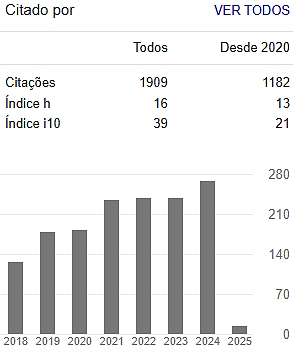HUMAN TRAINING IN THE PERFORMANCE SOCIETY: MOVEMENT FROM ADAPTATION TO CRITICISM
Keywords:
: human formation; society of the spectacle; education fetish.Abstract
This article investigates the hegemony of the spectacle in contemporary society, based on the ideas of Guy Debord in his work The Society of the Spectacle and the contributions of Saviani Historical-Critical Pedagogy (2008; 2011) on the theme of integral human formation. Debord (2006) analyzes capitalist society as a social structure that prevents critical and autonomous human development, in favor of a society fetishized by consumption and alienated from reality. Social relations are mediated by images and goods, promoted by the market and media, resulting in alienation and loss of critical consciousness. Saviani (2008; 2011), in turn, highlights that education in its ontological essence serves the human being and not things. For both, human formation is seen by the hegemonic class as process of adaptation to the needs of the capitalist system, rather than developing critical thinking. Methodologically, bibliographical research was used, based in the contributions of Debord (2006) an Saviani (2008; 2011). Among the results, it is clear that human formation must be oriented towards the construction of a fairer and more conscious society, in which education is not at the service of capital, but rather the integral and autonomous development of individuals. Overcoming the mercantile teaching model requires a commitment to an education that promotes desalination and effective participation in social transformation and human emancipation. Interdisciplinary dialogue between Philosophy and Education is essential for a critical analysis of training processes in contemporary times.
Downloads
References
BRANDÃO, Carlos Rodrigues. O que é educação? 6. ed. São Paulo: Editora Brasiliense, 1982.
CECHINEL, André; MUELLER, Rafael Rodrigo. Formação Espetacular! Educação em tempos de Base Nacional Comum Currícular. Salvador: EDUFBA, 2022.
__________. Formação Humana na Sociedade do Espetáculo. Criciúma: Argos editora Unichapecó, 2019.
DEBORD, Guy et al. Situacionista Teoria e Prática da Revolução/Internacional Situacionista [tradução de FrancisWuillaume, Leo Vinícius] São Paulo: Conrad Editora do Brasil, 2017.
________. A Sociedade do Espetáculo. Rio de Janeiro: Contraponto, 2006.
DUARTE, Newton. A pedagogia histórico-crítica e a formação da individualidade para si. Germinal: Marxismos e Educação em Debate, Salvador, v. 5, n. 2, p. 59 – 72, dez. 2013.
__________. Vigotski e o ‘aprender a aprender’: crítica às apropriações neoliberais e pós-modernas da teoria vigotskiana. Campinas: Autores Associados, 2001.
HENRIQUES, Julio org. Internacional Situacionista Antologia. Lisboa: Antigona, 1997.
INTERNACIONAL SITUACIONISTA. Situacionista: teoria e prática da revolução. São Paulo: Conrad, 2002.
MARX, Karl. O capital livro I (Trad. Rubens Enderle). São Paulo: Boitempo Editorial, 2013.
SACRAMENTO, Leonardo. A proposta educacional do capital. A Terra é Redonda. Online 02 de jun. 2024.
SAVIANI, Demerval. Escola e democracia. Campinas: Autores Associados, 2008.
SOUSA, Angélica Silva de; OLIVEIRA, Guilherme Saramago de; ALVES, Laís Hilário. A pesquisa bibliográfica: princípios e fundamentos. Cadernos da Fucamp, v.20, n.43, p.64-83, 2021. Disponível em: https://revistas.fucamp.edu.br/index.php/cadernos/article/view/2336. Acesso em: 13 dez. 2023.
__________. Pedagogia histórico-crítica: primeiras aproximações. 8. ed. Campinas: Autores Associados, 2011.
TONET, Ivo. Educação contra o Capital. 3. ed. São Paulo: Edufal, 2016.
TRIVINOS, Augusto Nibaldo Silva, Introdução à pesquisa em ciências sociais: a pesquisa qualitativa em educação 1. ed. São Paulo: Atlas, 1987.

